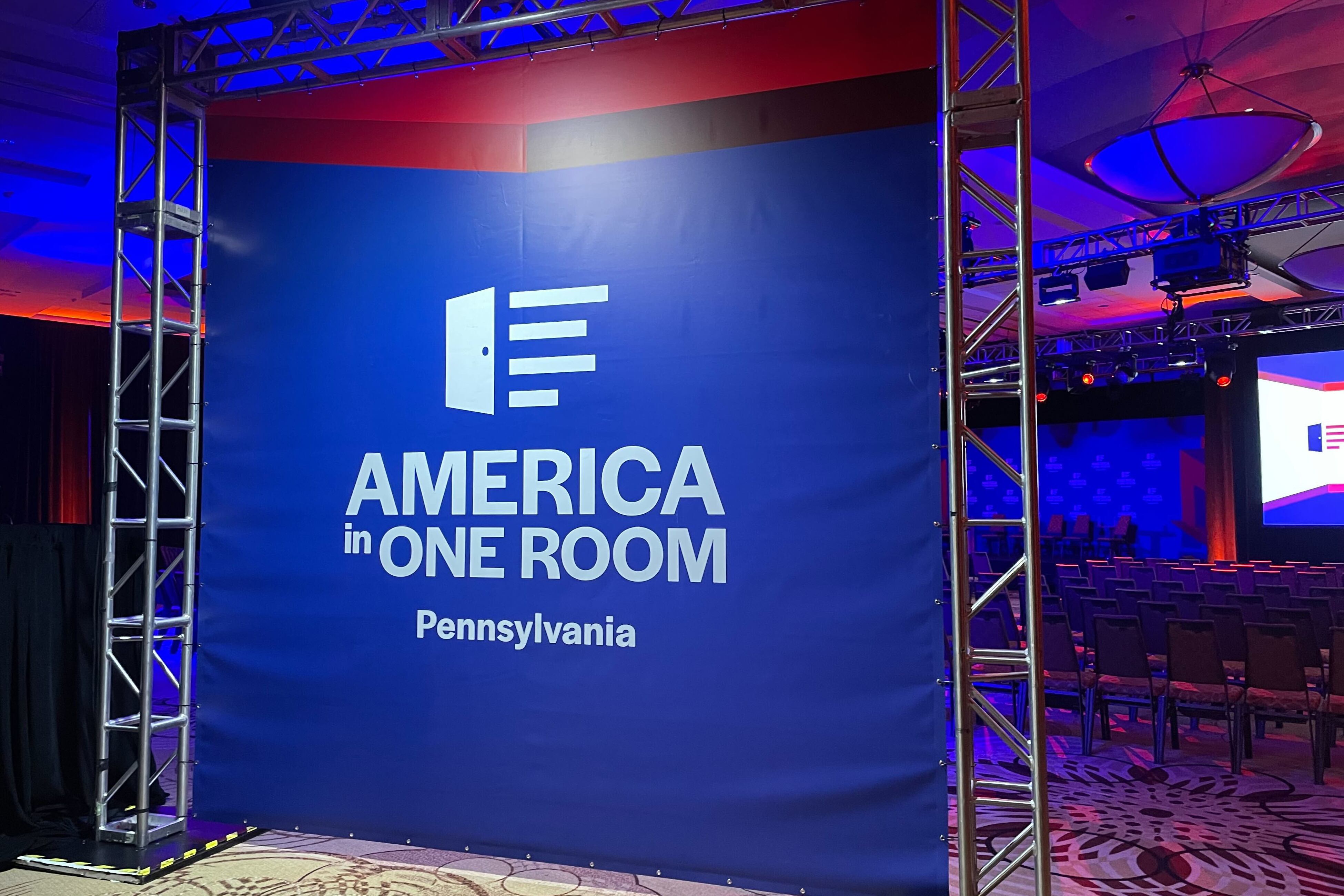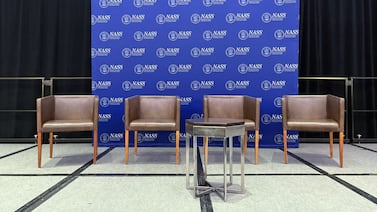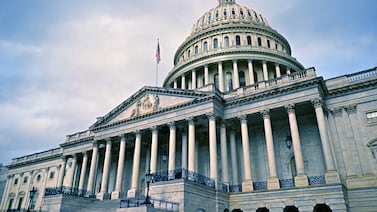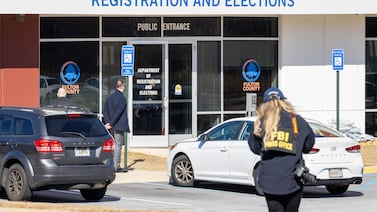Votebeat is a nonprofit news organization reporting on voting access and election administration across the U.S. Sign up for Votebeat Pennsylvania’s free newsletter here.
Partisan voters in Pennsylvania were more likely to change their view on election law proposals after discussing them with other voters of differing views and having access to subject matter experts, a new poll found.
Before the discussions, 43% of Republicans in the group and 49% of independents supported allowing in-person early voting for at least 11 days before an election, the poll from the America in One Room project found. But support grew after they had the chance to discuss it among themselves, and with Democrats. After those discussions, 57% of Republicans and 65% of independents polled said they supported the proposal.
Similarly, support grew among Democrats for requiring “government-issued photo ID obtained with proof of citizenship” when voting. Before the discussion, fewer than half of Democrats supported the idea; compared with 57% after deliberation.
The findings came out of a deliberative poll organized in Philadelphia last month by Stanford University’s Deliberative Democracy Lab and Helena, a nonprofit that runs the America in One Room civic-engagement project. They point to a possible pathway for broader consensus or compromise on election-related proposals that have fueled partisan rancor in Pennsylvania and across the country.
A “deliberative poll” is a polling method in which participants are given background information on an issue, access to policy experts to answer their questions, and a chance to discuss the issue among themselves. Participants take opinion surveys before and after the event, to see how the deliberation affected their policy preferences. A control group who aren’t participating in the deliberations also take the poll as a basis for comparison.
The idea is to “get a better assessment of the will of the people,” said James Fishkin, a communications and political science professor at Stanford and director of the Deliberative Democracy Lab.
Last month, Stanford and Helena gathered nearly 200 voters from around Pennsylvania in Philadelphia to discuss healthcare, immigration policy, and election reform, as well as other subjects. Participants were selected using a method meant to proportionally represent the state’s geographic regions, as well as demographic and political characteristics, such as age, race, education, and political leanings.
After discussions on election reform, the poll found growing support for several proposals that have typically divided the parties. Support for expanded early voting increased 10 points, to 71% after deliberation; 73% said after the event that they supported requiring photo ID to vote; and support for requiring video monitoring of mail ballot drop boxes also rose slightly, to 67%.
On another proposal, creating nonpartisan primaries where the top two vote-getters advance to the fall election, support decreased slightly among Republicans and Democrats, but rose among independent voters, who would stand to benefit the most under such a system.
Results from discussions of a proposal to allow election officials more time to process mail ballots were not included in the poll findings, after Votebeat and Spotlight PA noted errors in the briefing material provided to participants.
Many of the election proposals discussed by participants tracked with those in an omnibus voting reform package sponsored by state House Speaker Joanna McClinton, a Philadelphia Democrat, who answered participants’ questions on election issues on the third day. A Helena representative said the researchers worked with McClinton’s office to develop the discussion prompts, and hope the results will inform her priorities in ongoing negotiations with the state Senate over legislation. That legislation has shown no signs of movement since reaching the upper chamber in mid-May.
McClinton said she was “heartened” to see that support for key proposals in her bill grew during the discussions.
The America in One Room report “provides valuable insight into what Pennsylvanians think are the best ways to modernize our elections,” she said in an emailed statement. “Now my team and I can use the report’s findings while we work with stakeholders and our partners in the Senate to advance my legislation, and ensure it ultimately reflects what Pennsylvanians want.”
Carter Walker is a reporter for Votebeat in partnership with Spotlight PA. Contact Carter at cwalker@votebeat.org.






